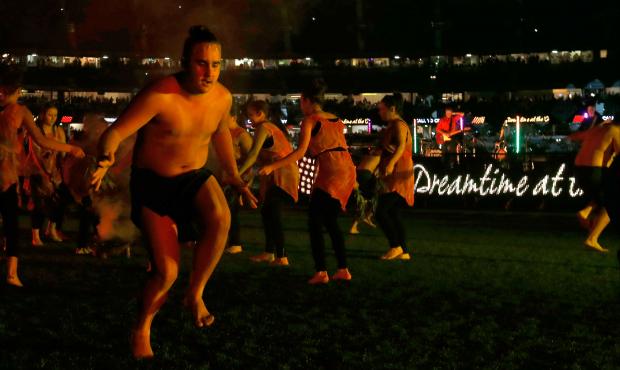THE AFL's Indigenous Round will be named in honour of Aboriginal icon Sir Doug Nicholls from 2016 onwards.
Occurring in round 10, 2016, the inaugural Sir Doug Nicholls Round will be played across the weekend of May 25-27.
The annual Dreamtime at the 'G match between Essendon and Richmond remains the highlight of the round, which also includes games between Melbourne and Port Adelaide in Alice Springs, the Brisbane Lions and Hawthorn in Brisbane and the Sydney Swans and North Melbourne in Sydney.
Sir Doug Nicholls played 54 games with Fitzroy and was a brilliant all-round athlete who later became the Governor of South Australia after a life devoted to the wellbeing of Aboriginal and Torres Strait Islander peoples.
AFL CEO Gillon McLachlan described Sir Doug's contribution to society as one of football's most interesting stories.
"He represented both the values of our game and epitomised the spirit of reconciliation," McLachlan said.
"He was the first Indigenous player to represent Victoria at state level, while playing for Fitzroy, and during his life he was an elite runner, boxer, Churches of Christ pastor, Justice of the Peace, was awarded both the MBE (1957) and the OBE (1968) before being knighted by Queen Elizabeth in 1972, and served as Governor of South Australia.
"He was a pioneering campaigner for reconciliation but his love for and commitment to Australian football was the glue that brought together all the other facets of his life."
Dreamtime at the 'G will remain the centrepiece of Sir Doug Nicholls Round. Picture: AFL Media
Sir Doug Nicholls is the only VFL/AFL player to have been knighted and to have served as a state governor.
The respected national figure was born at the Cummeragunja Aboriginal Mission in NSW in 1906, but moved to Victoria and played in the VFA with Northcote where he was part of the club's 1929 premiership.
He then joined Fitzroy in 1932 and played 54 games for the club between 1932 and 1937 and also played two games for Victoria.
Jason Mifsud, the AFL's former senior advisor on indigenous and multicultural affairs, said in October 2015, Sir Doug Nicholls' commitment to indigenous people had been his lifelong work.
"Sir Doug understood that on many levels sport – in particular Australian football – has a critical role to play in the wellbeing of Aboriginal and Torres Strait Islander peoples," Mifsud said.
"After he retired from Fitzroy, Sir Doug was the longstanding Chairman of the National Aboriginal Sports Foundation (NASF) that conducted national Aboriginal football carnivals in all capital cities. He organised and coached the first Aboriginal All Stars games during World War II when the VFL and VFA suspended all competition matches, and these games were the forerunner to today’s AFL All Star games, when he brought together the best Aboriginal footballers for All Star games against VFA and local clubs from 1942-1948.
"He also ensured that Aboriginal women were involved in his carnivals through a national Aboriginal women's netball carnival, running at the same time and location as the football carnivals, and these carnivals also triggered the NASF rugby and basketball carnivals.
"This honour in our game's Indigenous Round is due recognition for a great man."
Sir Doug Nicholls: Part 1



